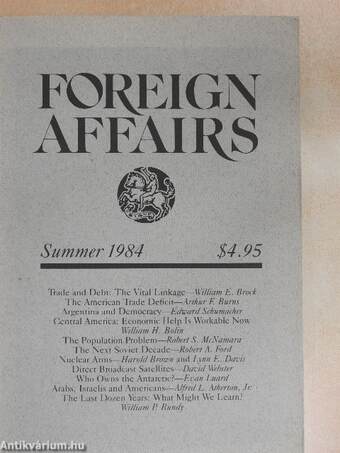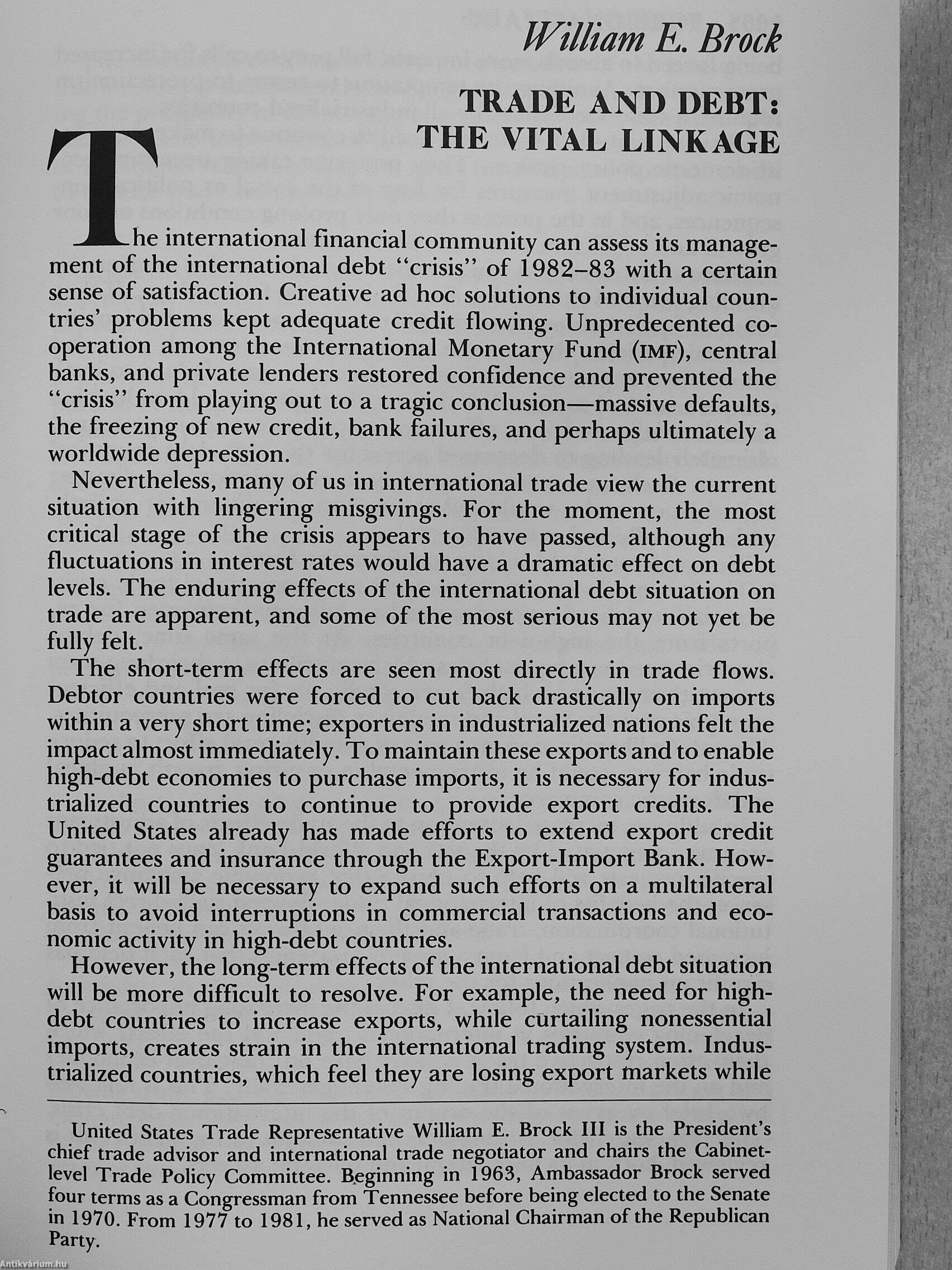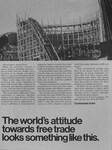1.068.031
kiadvánnyal nyújtjuk Magyarország legnagyobb antikvár könyv-kínálatát

VISSZA
A TETEJÉRE
JAVASLATOKÉszre-
vételek
Foreign Affairs Summer 1984
| Kiadó: | |
|---|---|
| Kiadás helye: | |
| Kiadás éve: | |
| Kötés típusa: | Ragasztott papírkötés |
| Oldalszám: | 239 oldal |
| Sorozatcím: | Foreign Affairs |
| Kötetszám: | |
| Nyelv: | Angol |
| Méret: | 25 cm x 17 cm |
| ISBN: | |
| Megjegyzés: | További szerzők a könyvben. |
naponta értesítjük a beérkező friss
kiadványokról
naponta értesítjük a beérkező friss
kiadványokról
Előszó
TovábbFülszöveg
Up and down, up and down.
When the economic climate is sunny, nations—including America-love to trade with one another. Let a recession s6t in, though, and they're likely to want protection from the foreign goods flowing into their markets, s Many would argue thai trade restrictions and export subsidies al times will permit older industries to modernize and domestic employment to rise, relieving some of the pressure caused by lower-cost competitors.
The record shows differently: Trade restrictions or expensive subsidies seldom, if ever; have had any of those desired results.When a country sets up artificial barriers or inducements to protect inefficient or noncompetitive
industries, history records that other countries retaliate with import quotas," ' tariffs and subsidies of their own.' -' '
• In thelast half century, the world has moved a long way towards ft-ee trade and away froi;n protectionism. As a result, the U.S. has profited from free
• trade, just as the world has... Tovább
Fülszöveg
Up and down, up and down.
When the economic climate is sunny, nations—including America-love to trade with one another. Let a recession s6t in, though, and they're likely to want protection from the foreign goods flowing into their markets, s Many would argue thai trade restrictions and export subsidies al times will permit older industries to modernize and domestic employment to rise, relieving some of the pressure caused by lower-cost competitors.
The record shows differently: Trade restrictions or expensive subsidies seldom, if ever; have had any of those desired results.When a country sets up artificial barriers or inducements to protect inefficient or noncompetitive
industries, history records that other countries retaliate with import quotas," ' tariffs and subsidies of their own.' -' '
• In thelast half century, the world has moved a long way towards ft-ee trade and away froi;n protectionism. As a result, the U.S. has profited from free
• trade, just as the world has profited ¦ from trade expansion. - , / .
Progress in ending mariy protectionist practices in recent years Has come through serious and difficult negotiations with our major trading partners.
For example, the General Agreement ' on Tariffs and Trade (GATT) has led to lower import duties on commodities and other products over three decades. ' GATT is also thé means for govern-, ments to settle disputes and gain
relief from unfair subsidies, tariffs and
quotas.: - . V .• ' i - ' •.These international trading rules have by no means solved all trade problems, as recent experience testifies. But U.S. farm exports have flourished under these rules during the past 20 years, and overseas buyers have been able to obtain our farm ¦ products at competitive prices, 'r
So before we are tempted to adopt short-term solutions to today's problems, lei's remember what ft-ee trade has done for U.S. exports—and especially for our farm exports.
Continental Grain Company,'277 Park Avenue. New York, NY 10172. ¦ ¦
Continental Grain Vissza
Témakörök
- Idegennyelv > Idegennyelvű könyvek > Angol > Folyóiratok, újságok
- Idegennyelv > Idegennyelvű könyvek > Angol > Történelem > Egyéb
- Folyóiratok, újságok > Történelem
- Történelem > Folyóiratok, közlemények, évkönyvek > Külföldi
- Történelem > Idegennyelvű > Angol
- Történelem > Politika > Külpolitika > Diplomácia
- Történelem > Politika > Külpolitika > Egyéb
Megvásárolható példányok
Nincs megvásárolható példány
A könyv összes megrendelhető példánya elfogyott. Ha kívánja, előjegyezheti a könyvet, és amint a könyv egy újabb példánya elérhető lesz, értesítjük.





